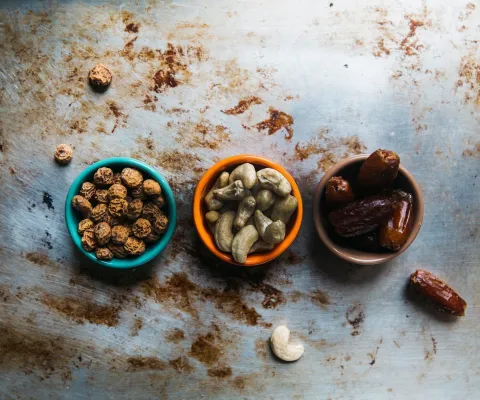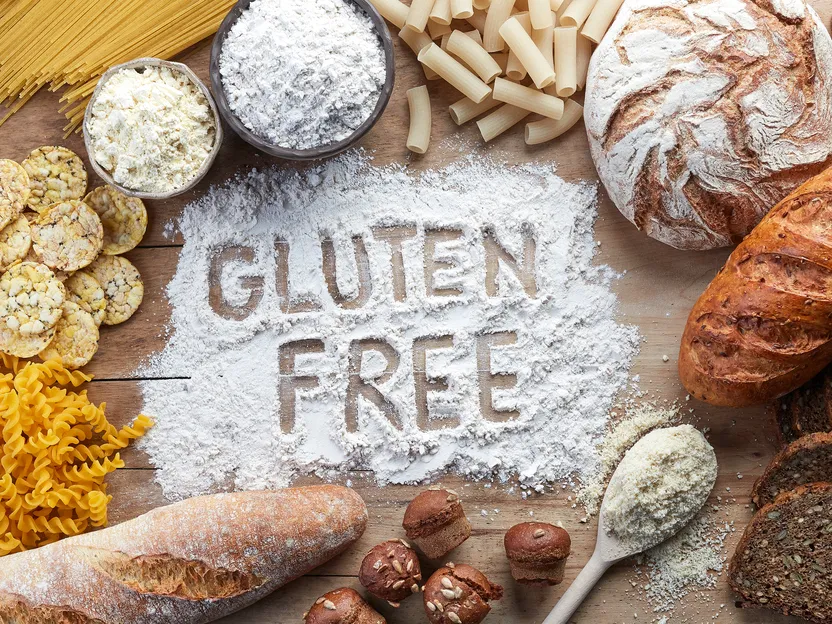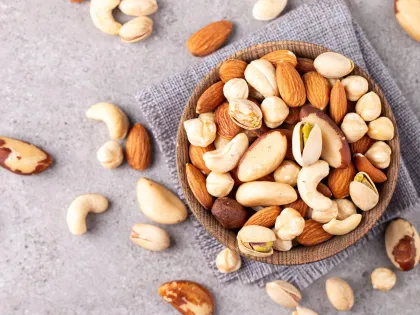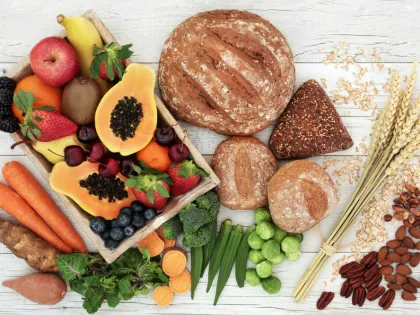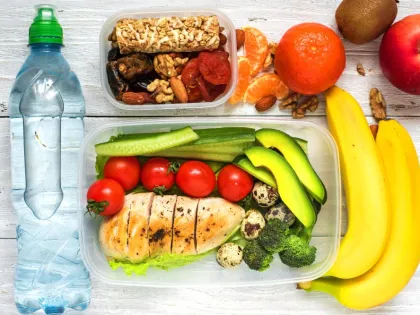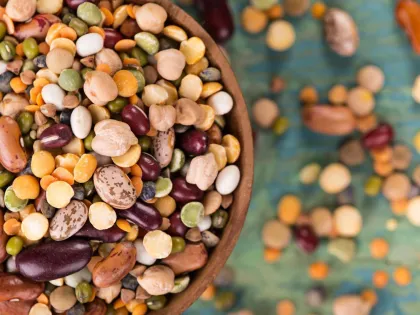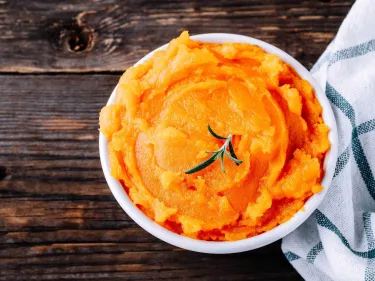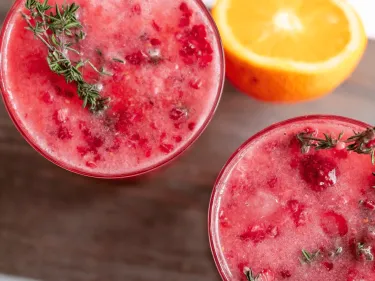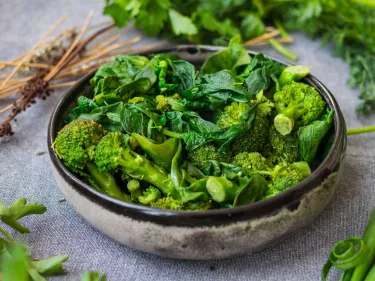What is gluten?
Gluten is a protein found naturally in wheat, barley and rye, and in some food additives. Many foods that people eat on a regular basis, such as bread, cereals, pastas and sauces naturally contain gluten because they may have an ingredient which contains gluten, or they are processed on equipment that also processes foods that contain gluten.
What is a gluten-free diet?
A gluten-free diet eliminates all foods that contain gluten. A gluten-free diet is currently the only effective treatment for Coeliac disease. Gluten can be safely consumed by most people, however people with Coeliac disease have an auto-immune condition. When a person with Coeliac disease eats foods that contain gluten, their body reacts to it, and this damages the small intestine. We absorb most of the nutrients from our foods through the small intestine, so damage in this area has significant health consequences for people with Coeliac disease, increasing their risk of nutrient deficiencies, which can cause conditions such as iron or B12 anaemia, and osteoporosis. If a person with Coeliac disease continues eating gluten they will experience systemic chronic inflammation, which increases their risk of heart, kidney and liver disease, bowel cancer, and for women can affect their fertility.
Coeliac disease is a lifelong condition that requires the strict elimination of all gluten containing foods. However, for some people, they may experience uncomfortable gut symptoms that they associate with eating gluten. After confirming that a person doesn’t have Coeliac disease, a person may be diagnosed with non-coeliac gluten sensitivity, and may choose to follow a gluten-free diet if they observe changes in their symptoms after excluding gluten.
What foods are eaten on a gluten-free diet?
Many foods are naturally gluten-free:
Vegetables
Fruits
Legumes
Lean proteins, including eggs and seafood
Most dairy foods
Nuts
Grains such as rice, buckwheat and quinoa
These days, for most foods that contain gluten, there is a gluten-free alternative available, including gluten free breads, pastas and cereals, muesli bars, sauces, chocolates and lollies. In Australia, foods can be labelled gluten-free if they contain no detectable gluten, however many naturally gluten-free foods won’t be labelled this way.
What are the potential benefits of following a gluten-free diet?
Coeliac disease affects 1 in 70 Australians, and following a gluten-free diet is currently the only available treatment. When a person with Coeliac disease follows a strict gluten-free diet, the damage to their small intestine can repair and they will likely experience a positive change to their symptoms.
For people with non-coeliac gluten sensitivity, a gluten-free diet may help with managing their symptoms.
What are the downsides of following a gluten-free diet?
Removing all gluten from the diet requires education, planning and management of all aspects of a person’s diet. Including what foods they can eat, maintaining separate cooking equipment and utensils, learning how to read food labels and ingredient lists and planning for social occasions and outings. This burden can have an impact upon a person’s quality of life, and may make it challenging to stick to a completely gluten-free diet.
There are many naturally gluten-free foods that form the basis of a healthy diet (see above), however, some people that follow a gluten-free diet may have higher intakes of fats, refined carbohydrates and may eat less micronutrients, because of a reliance on gluten-free foods that are heavily processed. Eating too many of these foods can increase a person’s risk of other diet-related chronic diseases such as Type 2 diabetes, and heart disease.
Gluten-free alternatives to common foods, such as breads, cereals and sauces are often more expensive, which can be a barrier for people needing to follow a gluten-free diet.
The bottom line
A strictly gluten-free diet is the only treatment option for people with Coeliac disease. For people who have been diagnosed with non-coeliac gluten sensitivity, eliminating gluten may help with managing their symptoms. A gluten-free diet eliminates a number of foods that form the basis of a healthy eating pattern, primarily from wholegrains, which are valuable sources of vitamins, minerals, complex carbohydrates and fibre, which need to be substituted with gluten-free alternatives to avoid the risk of nutritional deficiencies. Outside of these two conditions, following a gluten-free diet doesn’t provide any additional health benefits.
You can learn more about Coeliac disease, and access support from Coeliac Australia. If you are required to follow a gluten-free diet, it is important to seek help from your doctor or an Accredited Practising Dietitian to ensure your nutrition needs are being met.
